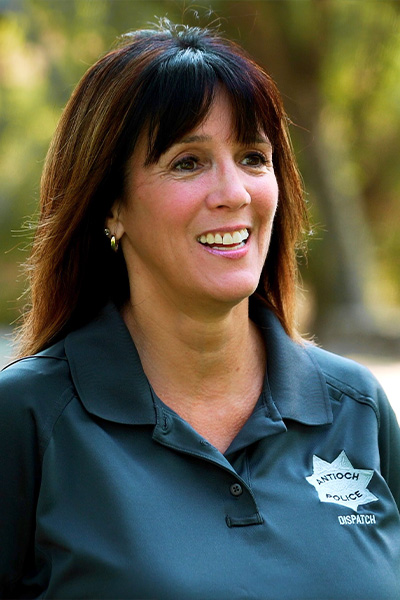Police Dispatcher
Police Dispatcher

Police Dispatcher
A police dispatcher involves receiving and coordinating responses to emergency calls. When a report comes in, the dispatcher gathers key details about the incident, including its location, the nature of the situation, and whether there are immediate threats or injuries. Based on this information, the dispatcher assigns available officers to respond, relaying crucial details such as descriptions of suspects or ongoing events. Dispatchers stay in constant communication with the officers, providing updates as new information becomes available and tracking their status to ensure safety. Every interaction is logged for accountability and future reference, enabling efficient law enforcement response and coordination.
$75,844 – $92,183 Annually
Dispatcher Recruitment FAQ
What experience is needed to be a dispatcher?
To apply for a dispatcher role, you need to be a high school graduate or have an equivalent diploma (GED). While no prior dispatching experience is required, candidates should have strong communication skills, the ability to remain calm under pressure, and be comfortable using technology. Any experience in customer service, multitasking, or fast-paced environments can also be beneficial.
Will I have to work holidays and weekends?
Yes. As a police dispatcher, you will be part of a 24/7 emergency response team, which means our dispatch center must be fully staffed at all times, including holidays, weekends, and overnight shifts.
What are the hours for your shifts?
Dispatchers work a variety of shifts to ensure the center is operational around the clock. Current shift schedules include:
- 4:30 AM – 4:30 PM
- 6:30 AM – 6:30 PM
- 2:30 PM – 2:30 AM
- 6:30 PM – 6:30 AM
You must be flexible with scheduling, as these shifts rotate to meet the needs of the department.
What training is required to become a dispatcher?
We provide all the necessary training! New dispatchers will undergo extensive on-the-job training. Additionally, you are required to complete a POST (Peace Officer Standards and Training) certification course within your first year of employment. This training covers emergency procedures, radio communications, and legal standards to ensure you are fully prepared for the role.
What steps are involved in becoming a dispatcher?
- Application: Submit an application through the city’s hiring portal.
- Testing: Qualified applicants will be invited to take a skills test, which evaluates your multitasking, typing, and situational awareness abilities.
- Oral Board: If you pass the test, you will be scheduled for an oral interview board where you’ll answer questions from a panel about your qualifications and suitability for the role.
- Hiring Process: Successful candidates will receive an offer of employment and undergo a background check.
- Training: Once hired, you’ll attend a dispatch academy and receive on-the-job training from experienced dispatchers before starting in your position.
What skills are important for a police dispatcher?
Key skills include:
- Excellent communication and listening abilities
- Excellent customer service skills
- Quick decision-making under pressure
- Ability to multitask effectively
- Calm demeanor in high-stress situations
- Strong attention to detail and accuracy
- Proficiency in computer systems and radio equipment
What does a typical day look like for a dispatcher?
Dispatchers typically work in shifts, including nights, weekends, and holidays. A typical shift involves answering 911 and non-emergency calls, gathering information, prioritizing responses, and dispatching the appropriate police units. You may also need to run checks on vehicle registrations, criminal backgrounds, and other databases to assist officers.
Is there room for career growth in dispatching?
Yes, many dispatchers advance to supervisory or training roles within their department. There are also opportunities to specialize in emergency management, communications technology, or administrative positions.
What are the physical and mental demands of the job?
Dispatching can be mentally demanding, requiring long periods of concentration and quick decision-making.
Do I need previous law enforcement experience to become a dispatcher?
No, you do not need previous law enforcement experience. Agencies provide extensive training to new dispatchers to ensure they are prepared for the role.
How does a dispatcher contribute to public safety?
Dispatchers are the first point of contact in emergencies, making them a critical part of public safety. Their ability to quickly assess situations, provide accurate information, and coordinate police response ensures that communities remain safe and that officers in the field receive the support they need.
Why Join the APD?
The Antioch Police Department is committed to providing staff with work-life balance, opportunities for advancement, continuing education, ongoing training, and a law enforcement career that is challenging and exciting.
